
Politics
10:14, 28-Jul-2017
Japan's Defense Minister Tomomi Inada announces resignation amid scandal
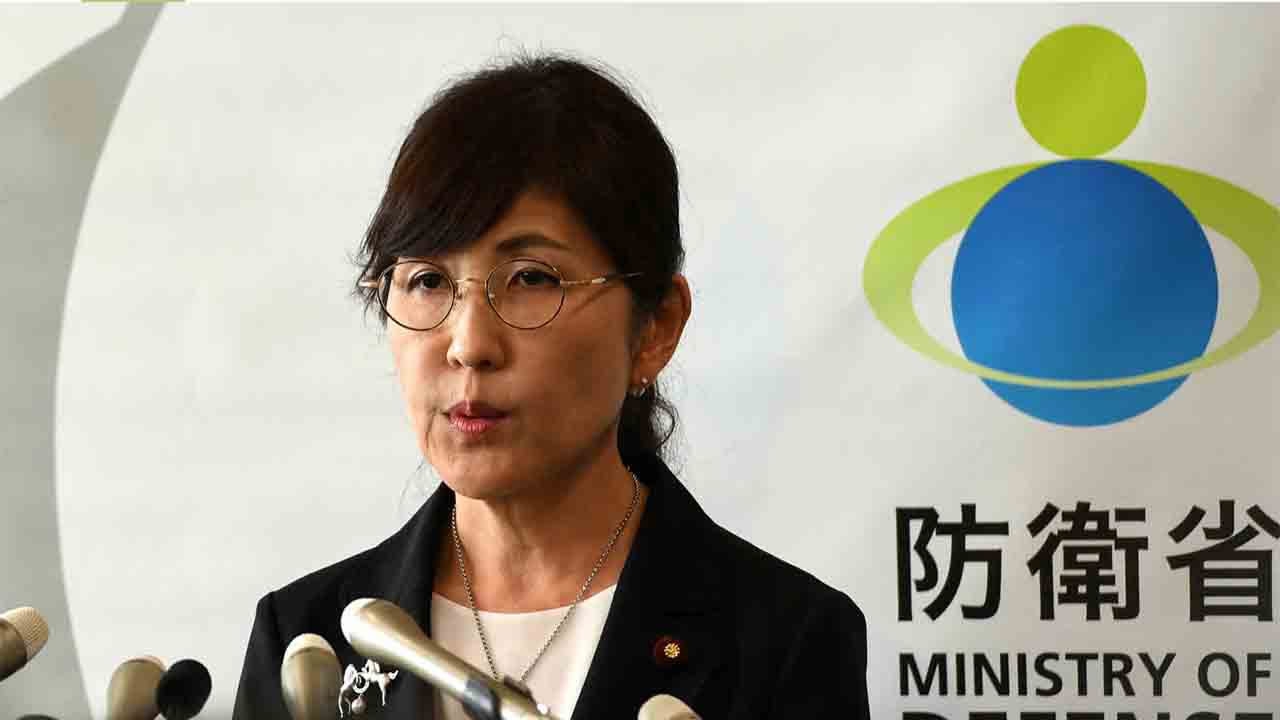
Japanese Defense Minister Tomomi Inada on Friday announced her resignation amid a scandal alleging that she covered-up mission logs documenting the Japan Self-Defense Forces' (SDP) peacekeeping activities in South Sudan.
"I decided to resign as defense minister," Inada said at a press conference. Prime Minister Shinzo Abe accepted her resignation, she told reporters.
She is the fourth minister to step down in the current administration.
Foreign Minister Fumio Kishida will take the post of defense minister until further notice.
The scandal
The resignation coincides with the ministry's release of results concerning an internal probe into the suspected cover-up, which Inada herself said on Friday, could damage the public's trust in the Defense Ministry and the SDF.
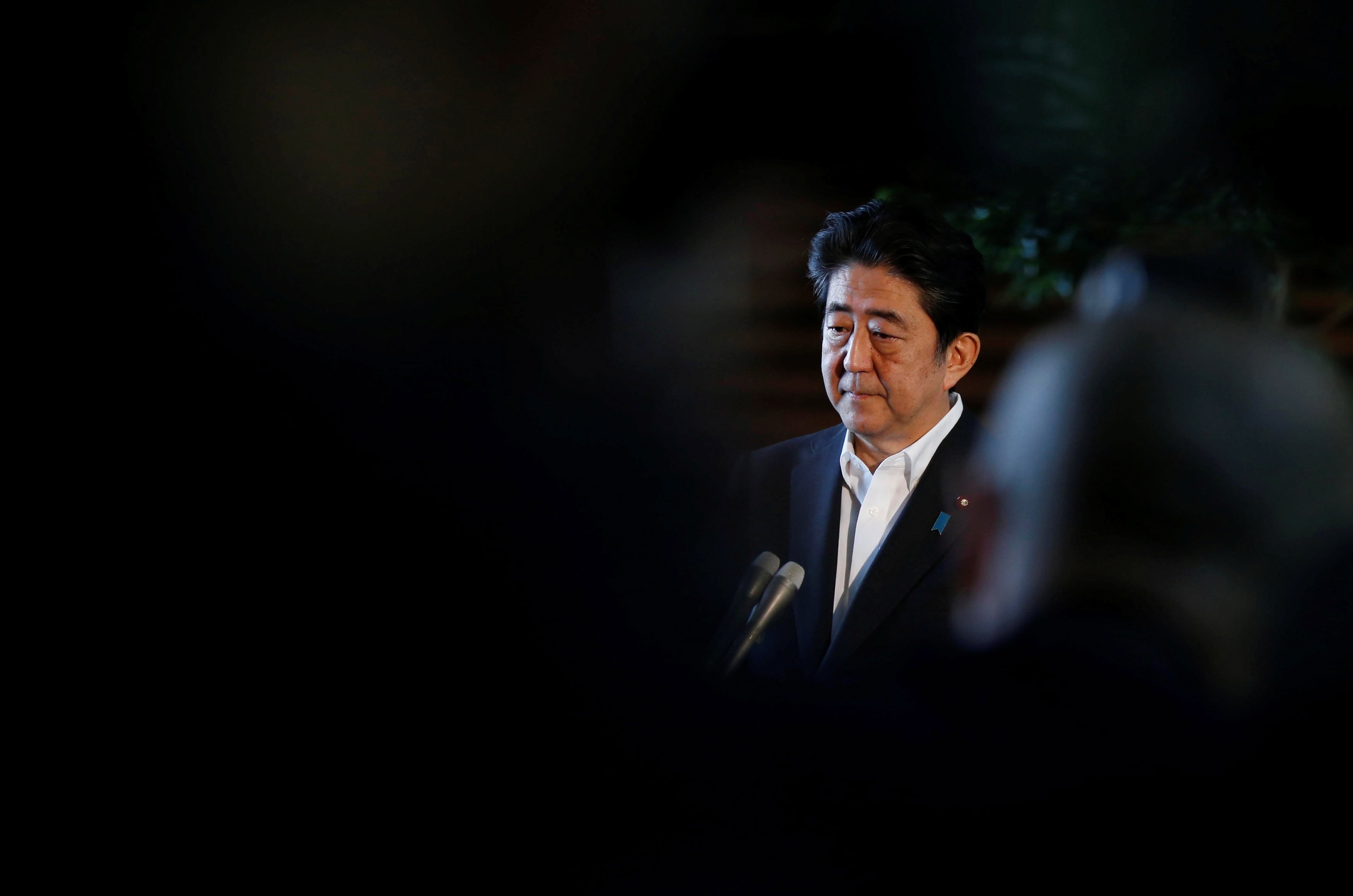
Japan's Prime Minister Shinzo Abe speaks to the media at his official residence
in Tokyo, Japan July 28, 2017. /Reuters Photo
Japan's Prime Minister Shinzo Abe speaks to the media at his official residence in Tokyo, Japan July 28, 2017. /Reuters Photo
Abe speaking to reporters on Friday, apologized over the
resignation of Inada, saying, "I accepted (Inada's) resignation out of respect for
her desire to take responsibility for having caused disruption."
Japanese law states that its self-defence force personnel are not allowed to join peacekeeping missions, where warring parties have not imposed a ceasefire. However, information referring to combat between government and rebel forces in South Sudan was recorded in daily activity logs kept by the Ground Self-Defence Forces (GSDF).
The logs, which showed the deteriorating situation in South Sudan, were said to have been discarded by members of the GSDF, however a digital version was later found.
Close ally
Inada has been widely recognized as Abe's protege, and once seen by many as Abe's successor-in-waiting.
Similar to Abe's conservative views, Inada has defended many of Japan's aggressive actions during the Second World War.
She also supported Abe's proposal of revising a pacifist constitution and made regular visits to Tokyo's Yasukuni Shrine.
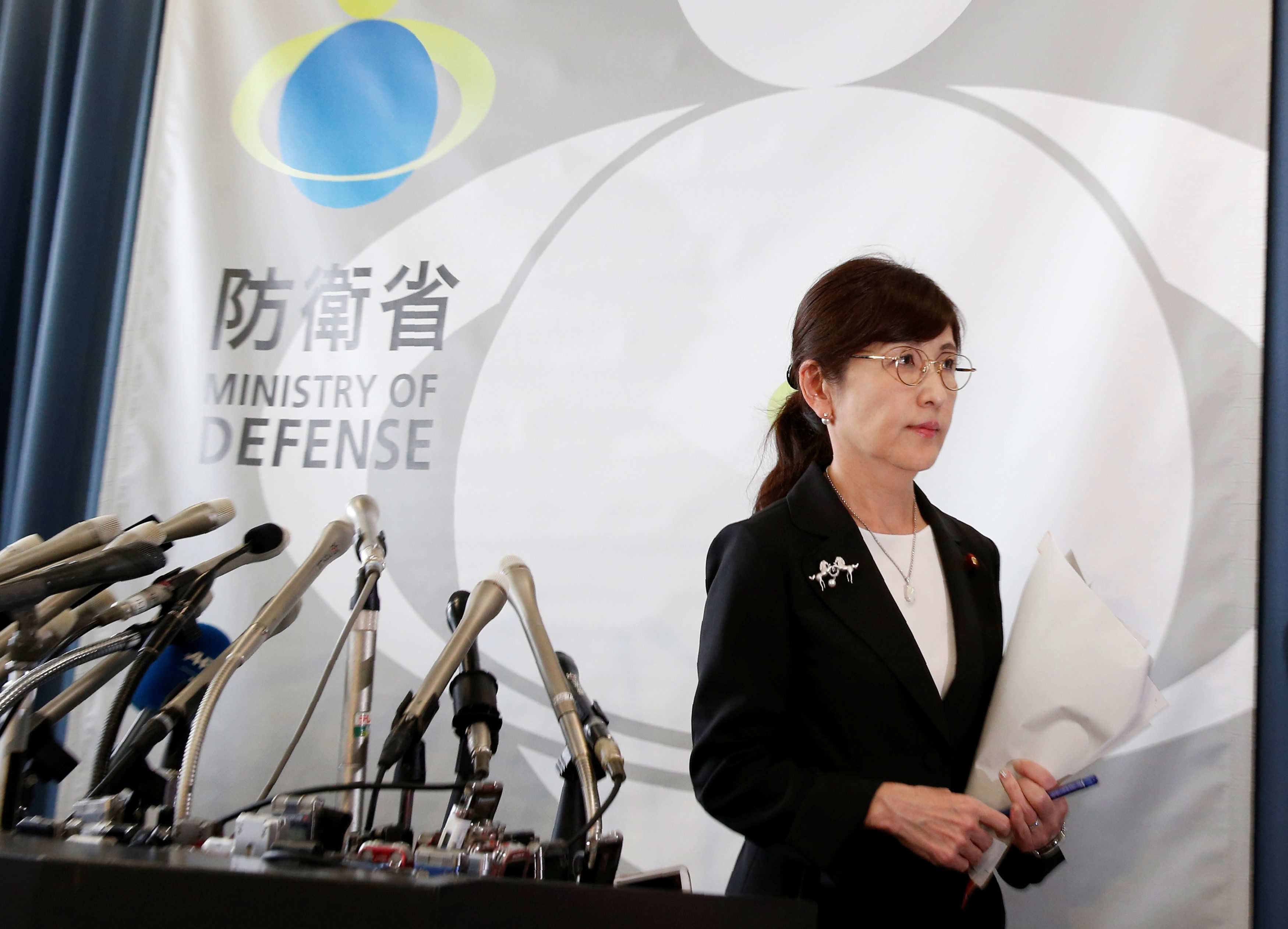
Japan's Defense Minister Tomomi Inada leaves her resignation news conference
at the Defense Ministry in Tokyo, Japan July 28, 2017. /Reuters Photo
Japan's Defense Minister Tomomi Inada leaves her resignation news conference at the Defense Ministry in Tokyo, Japan July 28, 2017. /Reuters Photo
The lawyer-turned-politician was appointed as the defense minister in a cabinet reshuffle in August last year and has since been involved in a series of gaffes including the recent cover-up.
Earlier this year, Inada admitted to having been involved in a scandal concerning the Moritomo Gakuen educational corporation in 2005, back when she was a defense attorney.
Abe was reportedly involved in influencing the sale of land from the government to the school at a discounted price.
However, Inada denied having had any ties to the scandal.
Abe defended Inada earlier this week over claims of her cover-up, saying he believed the defense minister would carry out a thorough probe into the issue.
Support ratings plunge
The resignation comes days before Abe's reshuffle of both his cabinet and the top ranks of the Liberal Democratic Party. Abe is looking to repair the plunging support ratings of his party and government.
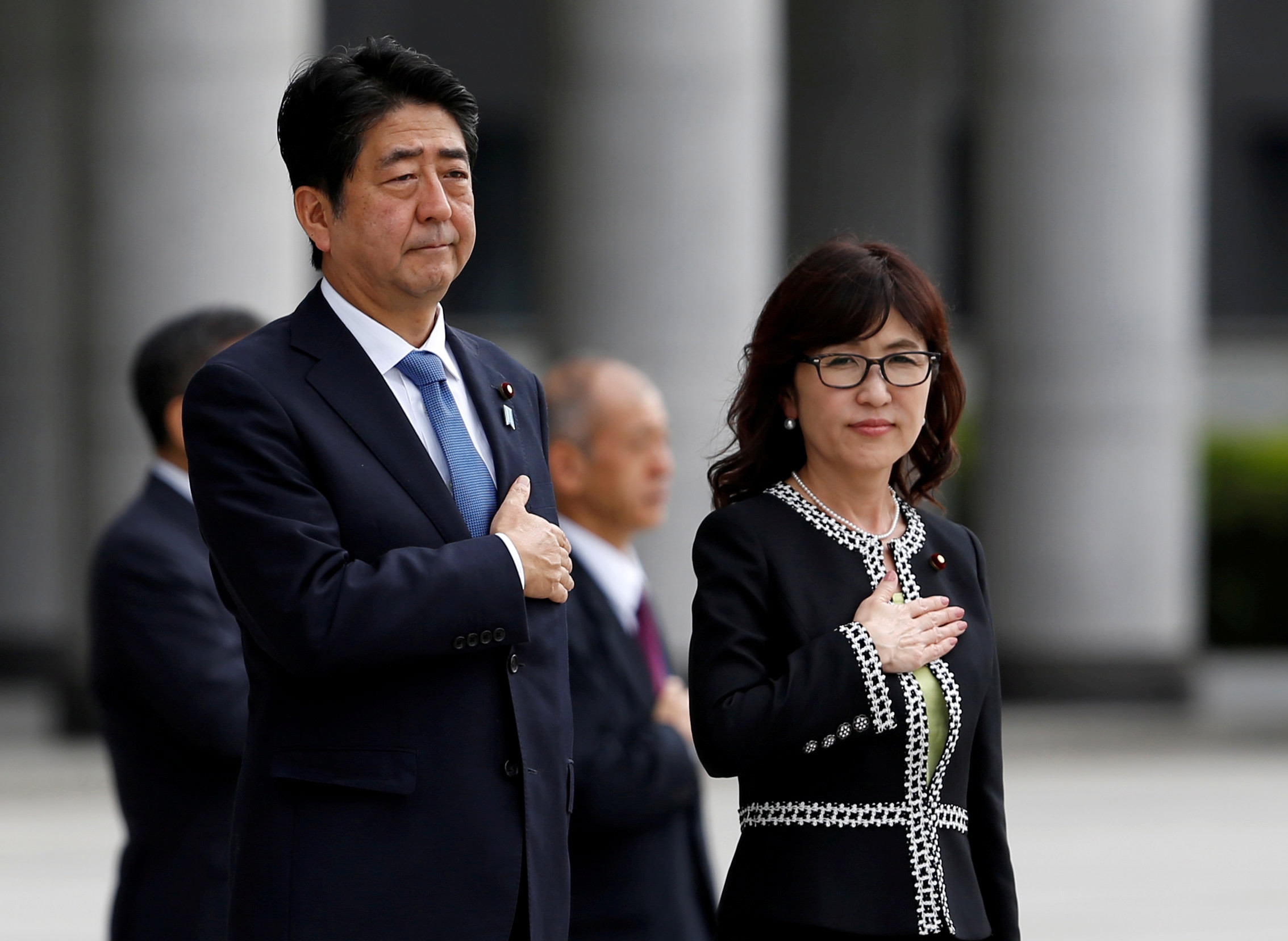
Japan's Prime Minister Shinzo Abe (L) and Defense Minister Tomomi Inada review
the honor guard at the Defense Ministry in Tokyo, Japan September 12, 2016./Reuters Photo
Japan's Prime Minister Shinzo Abe (L) and Defense Minister Tomomi Inada review the honor guard at the Defense Ministry in Tokyo, Japan September 12, 2016./Reuters Photo
The departure also adds to the political woes of Abe, who faced allegations of cronyism and whose ruling party lost two major local elections in the Tokyo Metropolitan Assembly Election earlier this month and a defeat in the Sendai mayoral election to an opposition-backed former lawmaker last Sunday.
Support for the Japanese prime minister has sunk to 26 percent in the latest polls released by The Mainichi, the first drop into the 20 percent range since he came back to power in December 2012.
While Abe cabinet’s approval ratings plunge, the main opposition Democratic Party has failed to gain traction. The party’s first female leader, Renho, announced her resignation on Thursday.
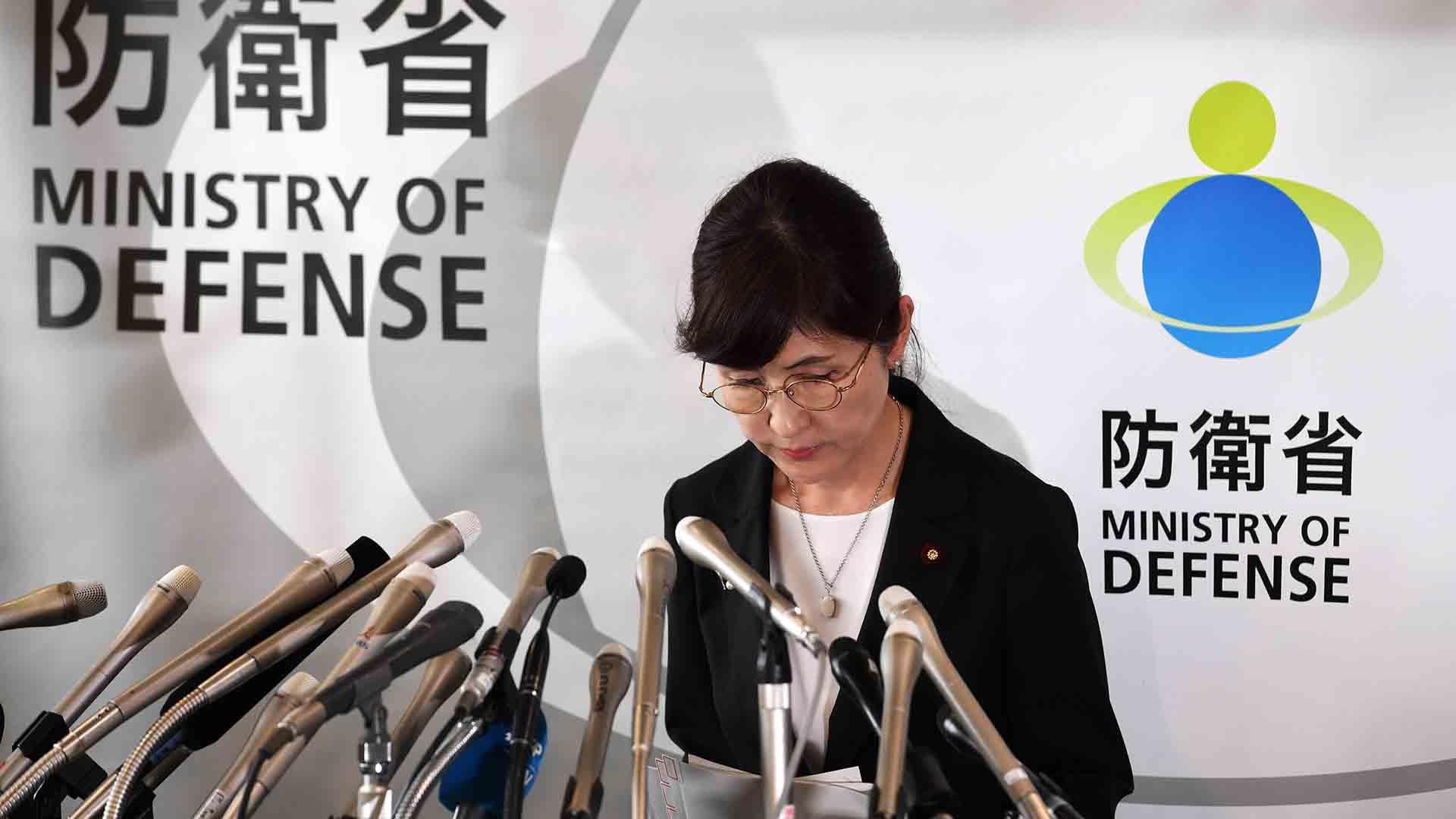
2106km
Related stories:

SITEMAP
Copyright © 2018 CGTN. Beijing ICP prepared NO.16065310-3
Copyright © 2018 CGTN. Beijing ICP prepared NO.16065310-3